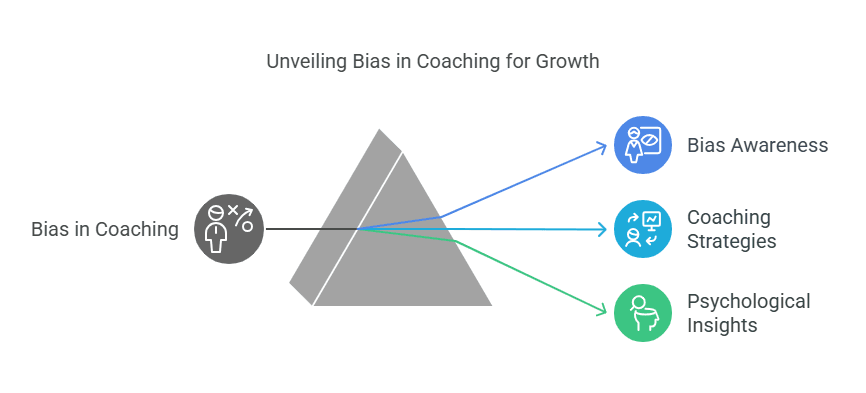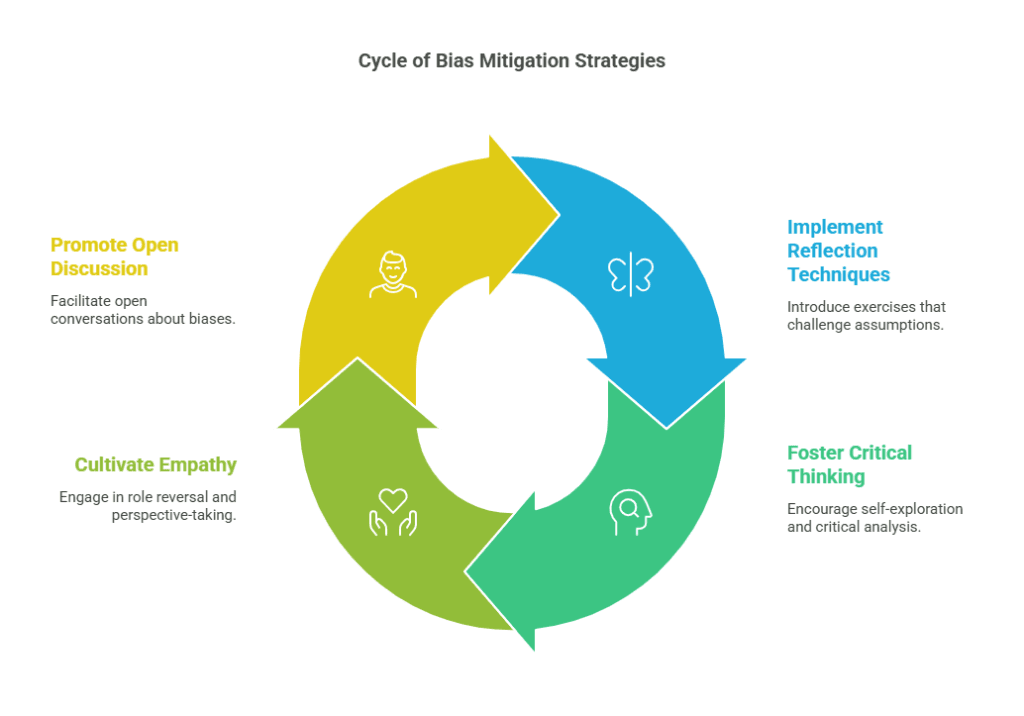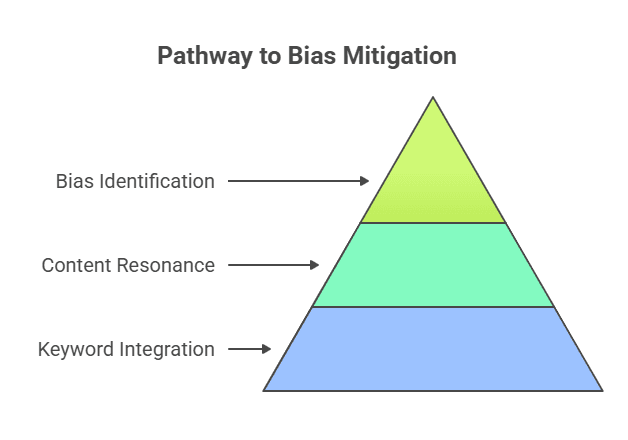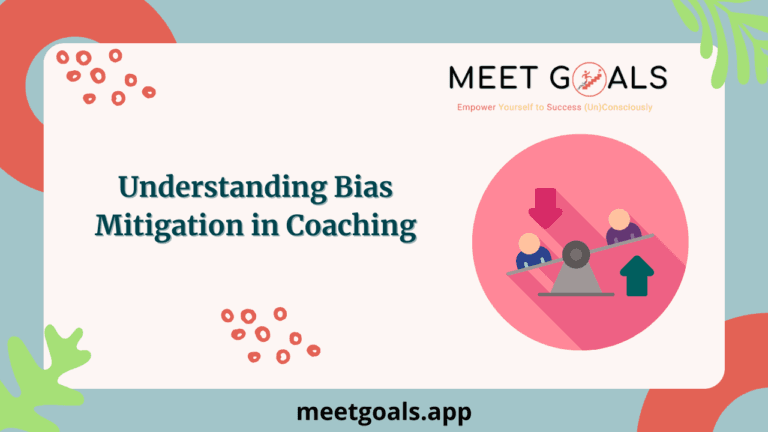The journey of personal and professional development is often met with unacknowledged adversaries, of which biases are the most pervasive and subtle. Bias, an intrinsic human flaw, can obscure clarity, distort perceptions, and hinder progress. In the realm of coaching, where the goal is to facilitate growth and self-awareness, understanding and mitigating bias is crucial. It’s a meticulous process that involves in-depth Bias Awareness, tailored Coaching Strategies, and Psychological Insights, ensuring that both coaches and clients move towards more objective and empowering interactions.

The Unseen Barriers: Recognizing Bias
Before we can address bias, we must first recognize its existence and understand its nature. Biases are the preconceived notions or prejudices that coaches and clients bring into the coaching relationship, often stemming from personal experiences, cultural context, or societal norms. They can manifest as stereotyping, favoritism, or resistance to change, and may result in distorted decision-making and advice.
Recognizing bias requires a vigilant self-reflection and Bias Awareness, an ongoing process that coaches must engage in to ensure they provide equitable and effective coaching. It asks a coach to constantly question their own assumptions and to be open to learning from various perspectives.
Coaching Strategies for Bias Mitigation

Developing an arsenal of Coaching Strategies that specifically address bias is essential in the coaching practice. These strategies aim to create a coaching environment that promotes openness, transparency, and trust, encouraging clients like Emily to explore their own biases without fear of judgment.
One effective approach is to implement reflection and inquiry techniques that challenge both the coach’s and the client’s assumptions. Coaches can introduce exercises that promote critical thinking and self-exploration, fostering an atmosphere where biases can be openly discussed and dissected.
Another strategy involves cultivating empathy and understanding. Through role reversal and perspective-taking activities, coaches and clients can develop a deeper appreciation for each other’s backgrounds and thought processes, reducing the likelihood of misconceptions and prejudgments.
Psychological Insights: The Foundation of Bias Mitigation
At the heart of Objective decision-making lies a bedrock of Psychological Insights. Understanding the cognitive mechanisms behind biases enables coaches to identify and counteract them effectively. Coaches must acquire knowledge about cognitive biases such as confirmation bias, availability bias, and unconscious bias, as they are often at play in coaching sessions.
With these insights, coaches can design interventions that specifically target cognitive shortcuts that often lead to biased thinking. Techniques such as mindfulness practices, decision-making frameworks, and unbiased goal-setting can help guide clients towards more objective self-assessment and action planning.
Content Creation with Purposeful Integration of Keywords

In crafting a comprehensive blog post on Understanding Objective decision-making in Coaching, it’s pivotal to meaningfully integrate our primary and sub-keywords. This strategic inclusion not only enhances SEO performance but also ensures that the content we develop resonates with those seeking answers on Bias Awareness, Coaching Strategies, and Psychological Insights.
By prioritizing these keywords, we guide our readers, step by step, through the process of identifying and mitigating bias, ensuring the content educates, informs, and empowers.
A Path to Enlightened Coaching
The ultimate goal of bias mitigation is to guide coaching practices toward more enlightened, inclusive, and effective outcomes. When coaches and clients work together to recognize and address bias, the coaching relationship becomes a dynamic space for genuine growth and discovery.
Coaches equipped with a robust understanding of biases, supported by concrete strategies and psychological insights, can facilitate profound transformations. They help clients navigate their inner landscapes free from the distortions that biases impose, embracing a journey that is true to their authentic selves.
Conclusion: The Commitment to Growth
In conclusion, Understanding Bias Mitigation in Coaching is not merely a topic of interest; it is a commitment to fostering a coaching environment where both coach and client evolve beyond their inherent biases. It is about building a practice grounded in self-awareness, continuous learning, and a dedication to impartiality.
As Emily ventures through her coaching journey, may she, and others like her, discover the power of a bias-free coaching relationship. Let this blog serve as a catalyst for such exploration, inviting a deeper understanding that paves the way for unimpeded potential and growth.
In these pages, let the message ring clear: we are more than our biases, and through vigilant mitigation, our paths to development can be clearer, our insights more profound, and our progress unfettered. Let us publish this piece with the confidence that it will inspire coaches and clients alike to embrace the challenge of bias mitigation – a journey not just of professional development, but of societal advancement and personal enlightenment.

